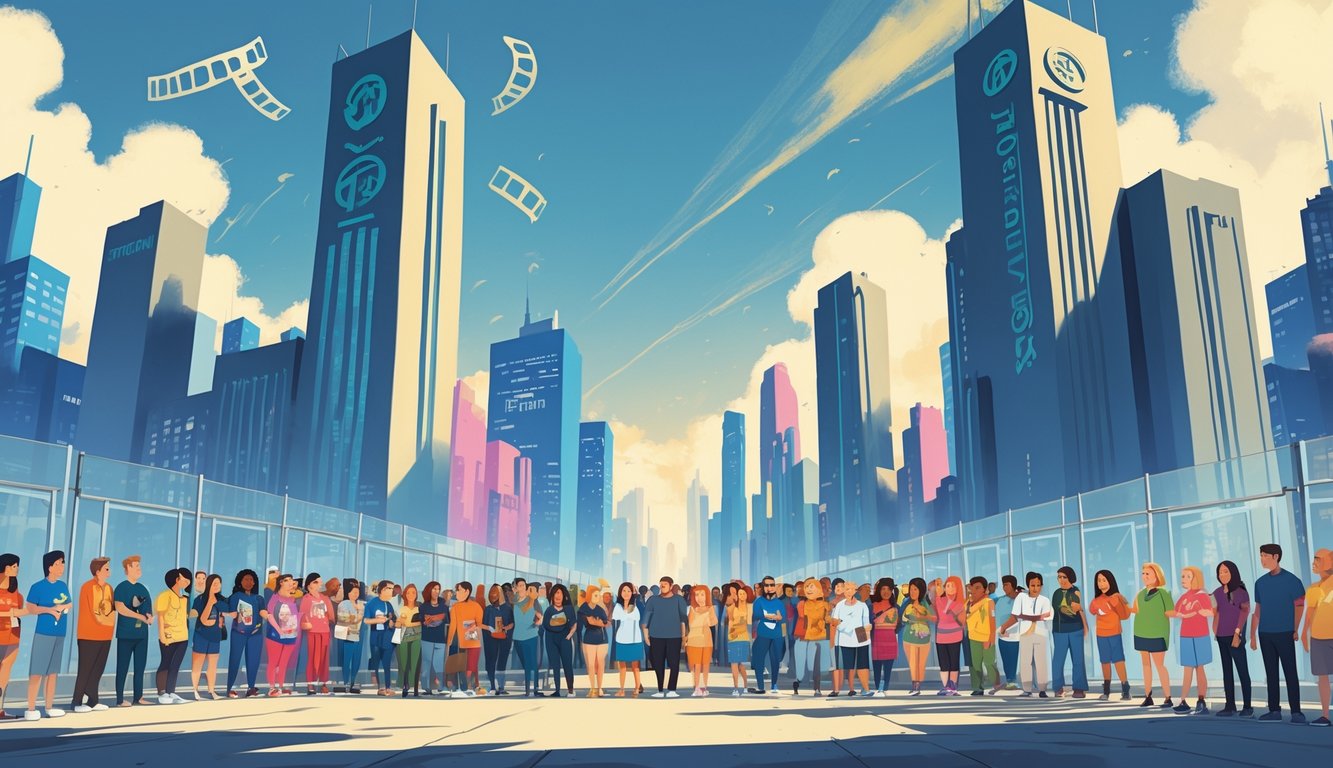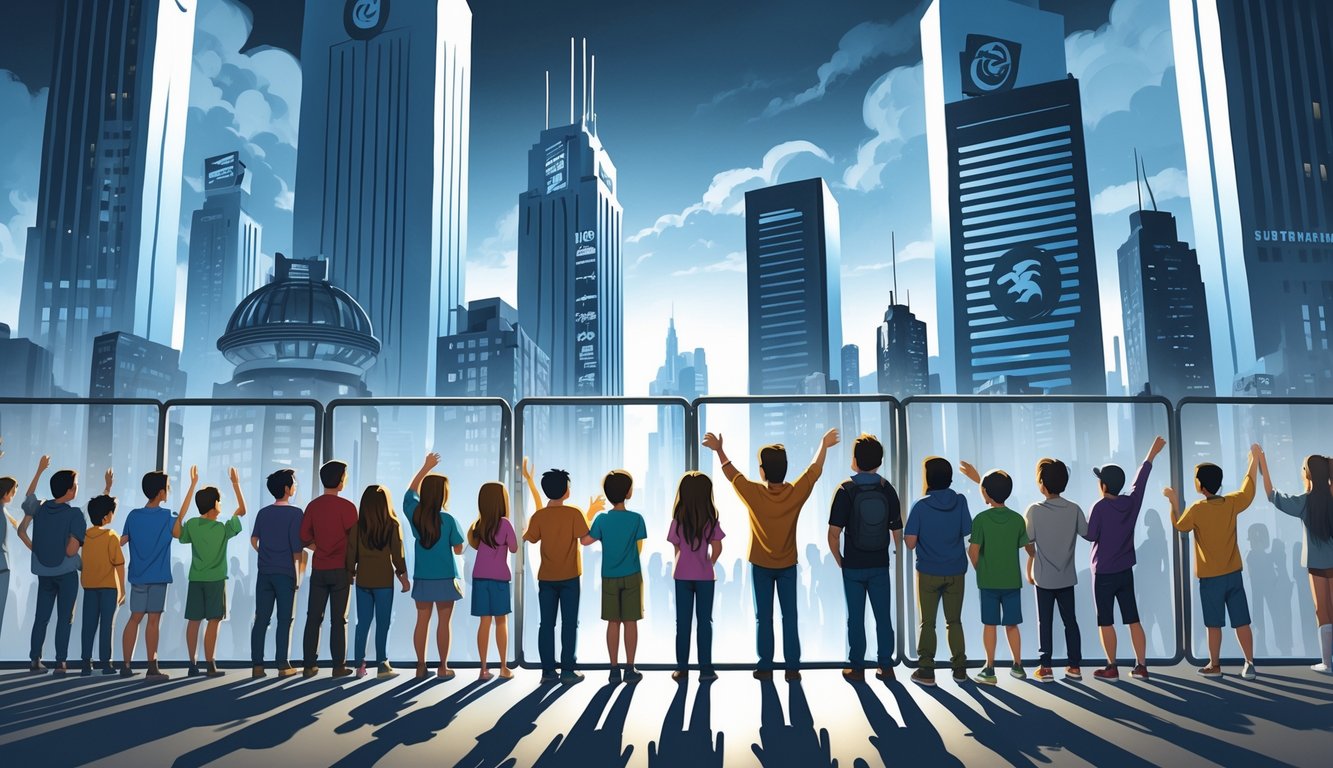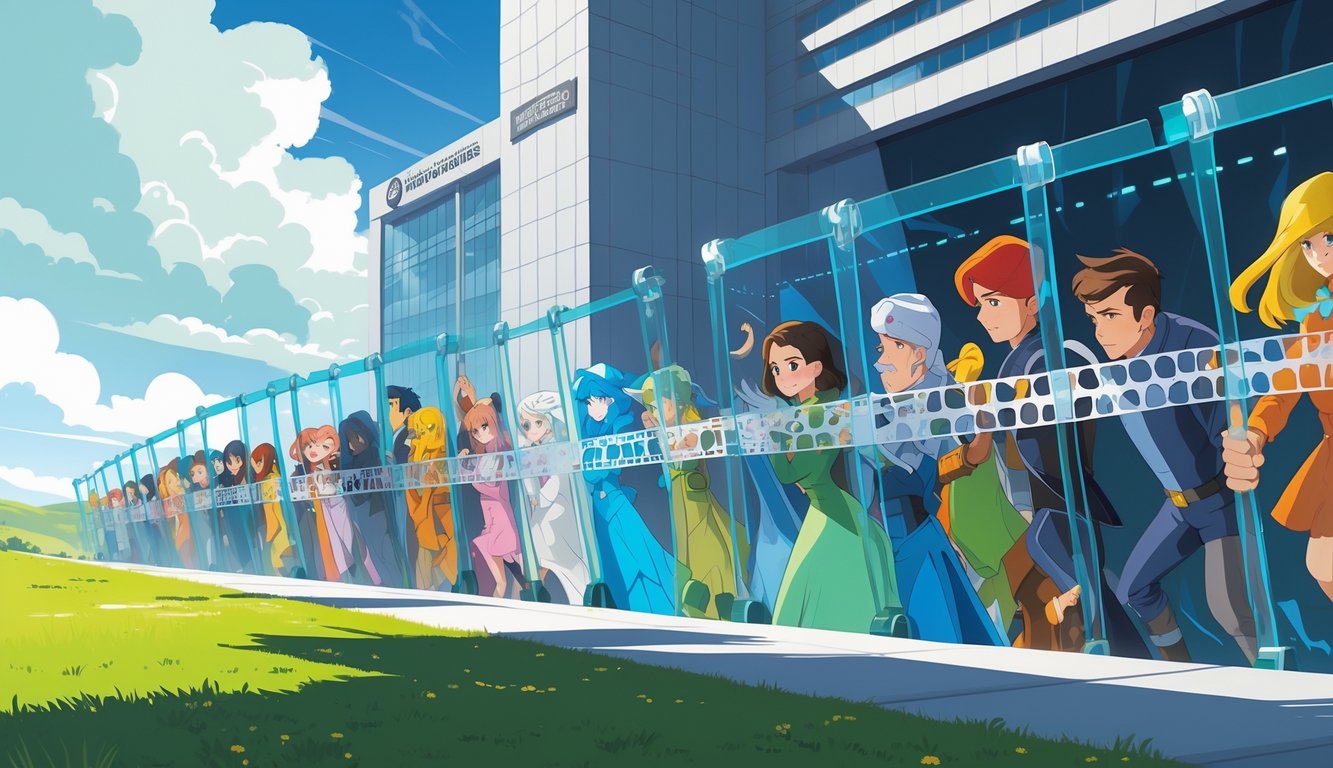
So, this keeps happening: I try to rewatch something I actually like—Netflix, Amazon, Max (or whatever HBO is this week)—and, yeah, it’s just not there anymore. Studios keep yanking hit shows and movies off platforms or hiding them behind some “exclusive” paywall, so good luck finding your favorites. It’s weirdly sneaky. Variety covered how, once a licensing deal ends, studios just hoard their stuff for their own apps, so unless you’re paying for that exact one, tough luck.
You’d think, after 270 million YouTube views (looking at you, Glitch fans), finding a show would be straightforward. Nope. Not if the spreadsheet crowd in Hollywood has anything to say about it. There’s this Parrot Analytics case study floating around about “co-exclusive licensing” supposedly protecting subscriber numbers, but, uh, it just means everyone else loses out.
Meanwhile, fans are stuck chasing Reddit rumors about new seasons or who owns what, and I’m just over here getting those “no longer available” pop-ups like it’s a sick joke. Studios micromanage licensing windows harder than my mom micromanages leftovers—no, 2024 leftovers are not still edible, and my patience for this is definitely expired.
The Rise Of Studio Licensing Moves

What I can’t get over: these shows just bounce between streaming services like mismatched socks, and nobody—nobody—has a straight answer. Used to be, reruns (“I Love Lucy,” anyone?) could show up anywhere. Now it feels like some weird corporate custody battle over your comfort TV.
Growing Trends In Content Restriction
Lost count of how many times I’ve clicked play just to get “not available” slammed in my face. It’s not random. Warner Bros. Discovery, Disney, NBCUniversal, Netflix—they all pull their own hits from wider circulation just to make their own apps look better or to squeeze a fatter exclusive deal. Warner Bros. Discovery even admitted a 17% drop in content distribution money because they ditched old licensing fees for this “limited access” thing (yeah, check their 2024 reports).
Streaming used to be fun. Like, a buffet. Now it’s this velvet-rope situation. Cross-licensing—letting shows live on multiple platforms—is pretty much dead for big scripted stuff. Reality TV still gets passed around (29% of titles, apparently), but the big legacy shows? Suddenly rare. Viewers lose, and small streamers get stuck with scraps.
Major Players Influencing Change
Disney’s somehow winning this game, not by inventing anything, but just by grabbing all its big stuff (“Marvel,” “The Simpsons,” “Star Wars”) for Disney+ and tossing out a few unscripted shows if it makes sense for them. Maybe I’m just cynical, but most of these moves are about juicing subscriber numbers, not “access.” Amazon MGM’s doing the same, rewriting their licensing to milk their hits for every cent.
David Zaslav (Warner Bros. Discovery CEO, 2024 earnings call) actually called “Superman, Batman, DC, Harry Potter” their “NFL.” So, yeah, they treat these shows like they’re Super Bowl tickets now. Old favorites like “Friends” and “The Office”? Now they’re locked up tight, only on one app at a time. Every distribution person I know says it’s about control, not making things easy for viewers, which is just…backwards if you ask me.
Impact On Fan-Favorite Series

Trying to watch something you love and getting blocked? It’s just miserable. These licensing changes leave whole fanbases scrambling, episodes vanish, entire shows get walled off—usually right when everyone’s talking about them online.
What Qualifies As A Fan-Favorite Series
So what actually counts as a “fan-favorite”? Not just the splashy stuff. Think “Murder Drones” with its 270 million YouTube views, or cult things like “Mindhunter”—forums still losing their minds about a renewal years after cancellation (Parrot Analytics says demand for those is in the 98th percentile, and, yeah, I checked). The term gets thrown around a lot, but it’s real: noisy online communities, memes that won’t die, endless rewatches, even those dumb change.org petitions.
But here’s the joke: sometimes a “fan-favorite” just disappears for licensing, and the studio acts like it’s for “growth.” I’ve watched execs confuse “engagement” (people yelling online) with “viewership” (actual eyeballs). The only thing that matters is a loyal base willing to subscribe or move platforms for a couple episodes.
Examples Of Recently Affected Shows
Netflix axed a series after three seasons—blink and suddenly the internet’s full of “save our show” threads. Or Glitch Productions moving “Murder Drones” to Prime Video: animation fans are loud, but take away free access and people either go hunting for unofficial streams or just give up.
When “Mindhunter” rumors about a third season started, all those abandoned subreddits came back to life. These aren’t just business moves—they break up communities. Tracking viewers by title (Nielsen’s 2024 streaming survey: 28% of fans subscribe to chase episodes, but almost 40% just quit if it gets too hard), it’s a mess. I get emails from parents who just want to watch an old sitcom with their kids, but now it’s paywalled—so the kids just move on to whatever the algorithm shoves at them.



